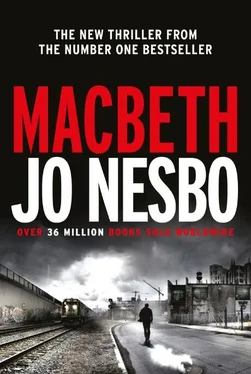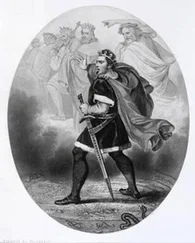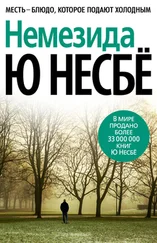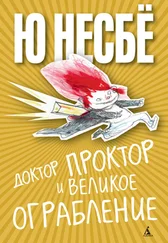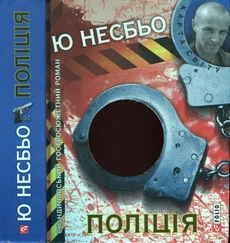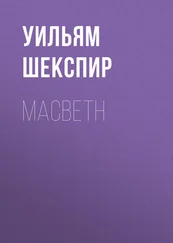Ю Несбё - Macbeth
Здесь есть возможность читать онлайн «Ю Несбё - Macbeth» весь текст электронной книги совершенно бесплатно (целиком полную версию без сокращений). В некоторых случаях можно слушать аудио, скачать через торрент в формате fb2 и присутствует краткое содержание. Город: London, Год выпуска: 2018, ISBN: 2018, Издательство: Hogarth, Жанр: Полицейский детектив, Криминальный детектив, на английском языке. Описание произведения, (предисловие) а так же отзывы посетителей доступны на портале библиотеки ЛибКат.
- Название:Macbeth
- Автор:
- Издательство:Hogarth
- Жанр:
- Год:2018
- Город:London
- ISBN:978-1-78109-025-1
- Рейтинг книги:4 / 5. Голосов: 2
-
Избранное:Добавить в избранное
- Отзывы:
-
Ваша оценка:
- 80
- 1
- 2
- 3
- 4
- 5
Macbeth: краткое содержание, описание и аннотация
Предлагаем к чтению аннотацию, описание, краткое содержание или предисловие (зависит от того, что написал сам автор книги «Macbeth»). Если вы не нашли необходимую информацию о книге — напишите в комментариях, мы постараемся отыскать её.
When a drug bust turns into a bloodbath it’s up to Inspector Macbeth and his team to clean up the mess.
He’s also an ex-drug addict with a troubled past.
He’s rewarded for his success. Power. Money. Respect. They’re all within reach.
But a man like him won’t get to the top.
Plagued by hallucinations and paranoia, Macbeth starts to unravel. He’s convinced he won’t get what is rightfully his.
Unless he kills for it.
Macbeth — читать онлайн бесплатно полную книгу (весь текст) целиком
Ниже представлен текст книги, разбитый по страницам. Система сохранения места последней прочитанной страницы, позволяет с удобством читать онлайн бесплатно книгу «Macbeth», без необходимости каждый раз заново искать на чём Вы остановились. Поставьте закладку, и сможете в любой момент перейти на страницу, на которой закончили чтение.
Интервал:
Закладка:
‘Me?’ Macbeth laughed. ‘Duncan’s deputy would take over of course, and his name’s Malcolm. Be off with you.’
‘Hecate’s prophecies never err,’ said the man-woman. ‘And you know that.’ She stood opposite Macbeth without moving, and Macbeth realised she was still taller than him.
‘Well?’ she said. ‘Is your casino lady keeping you clean?’
Banquo saw Macbeth stiffen. And thought this Strega should be happy to be considered a woman. Macbeth snorted, looked as if he was going to say something but changed his mind. Shifted his weight from one foot to the other. Opened his mouth again. Nothing came out this time either. Then he turned and strode towards the entrance of police HQ.
The tall woman watched him. ‘And as for you, Banquo, aren’t you curious to know what’s in store for you?’
‘No,’ he said and followed Macbeth.
‘Or your son, Fleance?’
Banquo stopped in his tracks.
‘A good, hard-working boy,’ Strega said. ‘And Hecate promises that if he and his father behave and follow the rules of the game, in the fullness of time he’ll also become chief commissioner.’
Banquo turned to her.
‘A planned rise,’ she said. Gave a slight bow and smiled, turned and grabbed the other two under her arms. ‘Come on, sisters.’
Banquo stared after this bizarre trio until they had rounded the corner of HQ. So out of place had they seemed that when they were gone he had to ask himself if they had really been there.
‘Lots of fruitcakes on the streets nowadays,’ Banquo said as he caught up with Macbeth in the foyer before the reception desk.
‘Nowadays?’ Macbeth said, pressing the lift button impatiently again. ‘Fruitcakes have always prospered in this town. Did you notice the ladies had minders?’
‘Hecate’s invisible army?’
The lift doors glided open.
‘Duff,’ Macbeth said, stepping to the side. ‘Now how...?’
‘Macbeth and Banquo,’ said the blond man, striding past them towards the door to the street.
‘Goodness me,’ Banquo said. ‘A stressed man.’
‘That’s what it’s like when you’ve got the top job.’ Macbeth smiled, walked in and pressed the button for the basement floor. The SWAT floor.
‘Have you noticed how Duff’s shoes always creak?’
‘It’s because he always buys shoes too big for him,’ Macbeth said.
‘Why?’
‘No idea,’ Macbeth replied and managed to stop the doors closing in front of the officer running over from reception.
‘Just had a call from the chief commissioner’s office,’ he said, out of breath. ‘Telling us to ask you to go up the minute you arrive.’
‘Right,’ Macbeth said and let go of the doors.
‘Trouble?’ Banquo asked after they had closed.
‘Probably,’ Macbeth said, pressing the button for the fourth floor. Feeling the stitches in his shoulder begin to itch.
5
Lady walked through the gaming room. The light from the immense chandeliers fell softly on the dark mahogany where they were playing blackjack and poker, on the green felt where the dice would dance later in the evening, on the spear-shaped gold spire that stood up like a minaret in the middle of the spinning roulette wheel. She’d had the chandeliers made as smaller copies of the four-and-a-half-ton chandelier in Dolmabahçe Palace in Istanbul, while the spire pointing from the middle of the ceiling down to the roulette table was a copy of the spire in the roulette wheel. The chandeliers were anchored with cords tied to the banisters of the mezzanine in such a way that they could be lowered every Monday and the glass cleaned. This was the kind of detail that passed straight over most customers’ heads. Like the small, discreet lilies she’d had sewn into the thick, sound-muffling burgundy carpets she had bought in Italy for a tiny fortune. But they didn’t go over her head, she saw the matching spires and only she knew what the lilies commemorated. That was enough. For this was hers.
The croupiers automatically stood up straight whenever she passed. They knew their jobs, they were efficient and careful, they treated the customers with courtesy but were firm, they had manicured hands, groomed hair and were immaculately dressed in Inverness Casino’s elegant red and black croupier uniform, which was changed every year and tailor-made for every single member of staff. And, most important of all, they were honest. This wasn’t something she assumed, it was something she saw and heard. Saw it in people’s eyes, involuntary tics, muscular twitches or theatrically relaxed states. Heard it in the tiny distinctions of quivering vocal cords. It was an innate sensitivity she had, inherited from her mother and grandmother. But while this sensitivity had led them as they aged into the dark shadows of insanity, Lady had used her skills to flush out dishonesty. Away from childhood’s vale of woe, up to where she was today. The rounds of inspection had two functions. One was to keep her employees on their toes that little bit more so that every day, every night, they would show themselves to be at least one class higher than those at the Obelisk. The second was to uncover any dishonesty. Even though they had been honest and honourable yesterday, people were like wet clay: they were shaped by opportunity, motive and what you told them today, and they could blithely do what had been inconceivable the day before. Yes, that was the only thing that was fixed, the only thing you could count on: the heart was greedy. Lady knew that. She had that kind of heart herself. A heart she alternately cursed and counted herself lucky to have, which had brought her affluence but had also deprived her of everything. But it was the heart that beat in her chest. You can’t change anything, you can’t stop it, all you can do is follow it.
She nodded to the familiar faces gathered around the roulette table. Regular customers. They all had their reasons for coming here and playing. There were those who needed to switch off after a challenging working day and those who, after a boring working day, needed a challenge. And those who had neither work nor a challenge, but money. Those who had none of the above ended up at the Obelisk, where you were given a tasteless but free lunch if you gambled more than five hundred. You had idiots who thought they had a system which promised long-term gains, a breed that kept dying but curiously never died out. And then you had those who — and no casino-owner would admit this aloud — formed the bedrock of their business. Those who had to. Those who felt compelled to come here because they couldn’t stop themselves risking everything, night after night, fascinated by the roulette ball whizzing around the shiny wheel like a little globe caught in the sun’s gravitational field, the sun that gave them daily life but which in the end, with the inevitability of physics, would also burn them up. The addicted. Lady’s bread and butter.
Talking about addiction. She looked at her watch. Nine. It was still a bit early in the evening, but she wished the tables were fuller. Reports from the Obelisk suggested they were continuing to take business away from her despite the heavy investment she had made in interior design, the kitchen and the upgrade of the hotel rooms. Some thought she was in the process of pricing herself out of the market and, because the three-year-old Obelisk was well established in people’s minds as the more reasonable alternative, she could and should cut down on the standards and expenses. After all, she wouldn’t lose her status as the town’s exclusive option. But they didn’t know Lady. They didn’t know that for her it wasn’t primarily about the bottom line but being the exclusive option. Not only more elegant than the Obelisk but better, whatever the comparison. Lady’s Inverness Casino should be the place you wanted to be seen, the place you wanted to be associated with. And she, Lady, should be the person you wanted to be seen and associated with. The moneyed came here and the top politicians, actors and sports personalities from the celebrity firmament, writers, beauties, hipsters and intellectuals — everyone came to Lady’s table, bowed respectfully, kissed her hand, met her discreet rejection of their equally discreet enquiry about gambling credit with a smile and gratefully accepted a Bloody Mary on the house. Profit or no profit, she hadn’t come all this way to run a bloody bordello, as they were doing at the Obelisk, so they could have the dregs, those she would rather not see beneath Inverness Casino’s chandeliers. Genuine chandeliers. But of course the tide had turned. The creditors had started asking questions. And they hadn’t liked her answer: what the Inverness needed was not cheaper drinks but more and bigger chandeliers.
Читать дальшеИнтервал:
Закладка:
Похожие книги на «Macbeth»
Представляем Вашему вниманию похожие книги на «Macbeth» списком для выбора. Мы отобрали схожую по названию и смыслу литературу в надежде предоставить читателям больше вариантов отыскать новые, интересные, ещё непрочитанные произведения.
Обсуждение, отзывы о книге «Macbeth» и просто собственные мнения читателей. Оставьте ваши комментарии, напишите, что Вы думаете о произведении, его смысле или главных героях. Укажите что конкретно понравилось, а что нет, и почему Вы так считаете.
